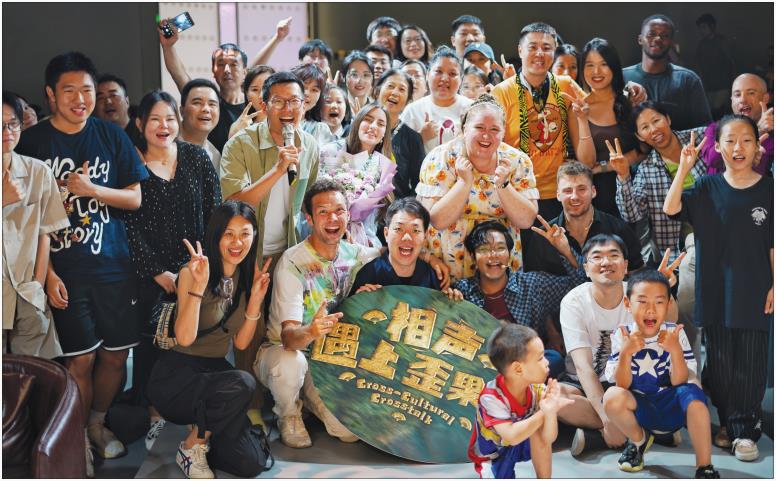

In the fall of 2012, Satoshi Nishida, a Japanese exchange student from Kyoto, was captivated by a double act comedy show at Beijing Language and Culture University.
Nishida found the performance electrifying yet familiar, reminiscent of manzai, a comedic style from Japan's Kansai region.
It set him on a journey to learn more about the Chinese-style crosstalk, or xiangsheng, one of the most popular forms of comedy in China.
"If I can use Mandarin to provoke laughter from local people, that would be an extraordinary achievement," Nishida said.
For Yegor Shyshov from Ukraine, a similar revelation occurred at a Mandarin speaking competition in 2010.He marveled at a group of foreigners who spoke Mandarin fluently and made the audience laugh heartily.
"I couldn't grasp half of their jokes at the time," he said, "but I was astonished that foreigners could deliver such emotionally compelling Chinese."
Driven by their shared ambition to learn the Chinese language through humor, the two foreigners from across the world embarked on a similar path, training with renowned xiangsheng artist Ding Guangquan, who began accepting foreign apprentices in 1989. Ding passed away in 2018.
For comedian Tina Huang, who is of Chinese and Russian descent, Chinese cross-talk helped put her in the limelight. Together with Chinese xiangsheng artist Yan Jiabao, Huang gained recognition at a 2016 show at the Beijing Radio & Television Station with their performance, Love, To Be In or To Be Out.
Huang's authentic Beijing accent and engaging stage presence made a lasting impression, marking her first few steps onto the xiangsheng scene.
Through xiangsheng lovers Nishida, Shyshov, Huang and many others, the groundbreaking show Xiangsheng Encounters Foreigners emerged. The program debuted in 2019 in Beijing's vibrant 798 Art District, a hub for contemporary art. It offered a platform for Chinese xiangsheng actors to work with foreign comedians passionate about Chinese culture.
The unique mix showcased a novel cultural dimension of the traditional art form, combining xiangsheng with various international influences and languages.
Yan, who founded the program's team, said its early days were modest, consisting of just seven or eight members.
"At times, we had to invite xiangsheng performers from outside our group to complete a show," he said.
Over the years, the troupe has expanded significantly. It now counts nearly 50 members, covering Asia, Europe, Africa, North America and Oceania. They currently perform at the GG2077 Space Station Theater in Beijing's China World Mall.